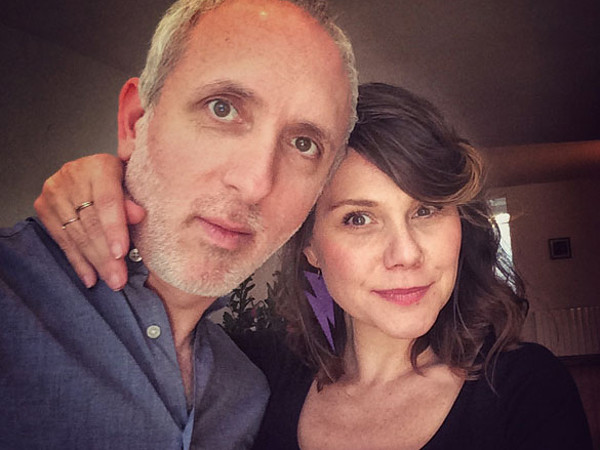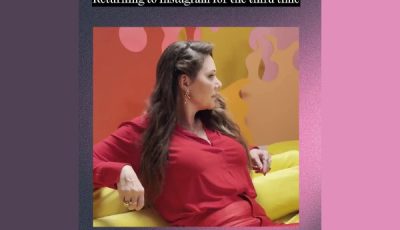‘The Porn Conversation’: Erika Lust has a Point
 BARCELONA – As a generally cynical person, I’m prone to look for ulterior motives behind things like public service campaigns initiated by individuals and companies, particularly when the goal or rhetoric of the campaign is something that might appear contrary to the financial interest of its sponsor.
BARCELONA – As a generally cynical person, I’m prone to look for ulterior motives behind things like public service campaigns initiated by individuals and companies, particularly when the goal or rhetoric of the campaign is something that might appear contrary to the financial interest of its sponsor.
This innate skepticism is why I’m leaving one eyebrow raised after reading about ThePornConversation.org, an effort founded by adult film director Erika Lust and her husband, Pablo Dobner, which “offers tools for parents to use to instigate the (porn) talk at home.”
“Our mission is to give adults the opportunity to help kids and teens make smart and informed decisions regarding pornography,” the organization’s mission statement continues. “Today we need more than sex education at school — we need parents to have the porn conversation.”
On the one hand, it irks me somewhat to see a few questionable claims regarding the ubiquity of online porn restated by a member of the industry (for example, the notion porn makes up one-third of total bandwidth consumption is most likely not true, considering how much of the available bandwidth is known to be consumed by Netflix and Hulu alone). On the other hand, when it comes to her central argument, Lust makes several very good and important points.
“The question of whether pornography should be part of modern sex education misses the point: that ship has sailed,” Lust wrote in a recent opinion piece. “Porn is already the new sex ed.”
Whether or not Lust’s claims about the average age of first exposure to porn are accurate, I think we can all agree these days most young people encounter porn long before they’ve hit legal adulthood — which happened in the pre-internet era as well, of course, but probably with far less frequency.
This fact presents us with relatively few choices when it comes to dealing with minors accessing porn. We can go down the course favored by social conservatives and try to craft new law and public policy they believe will limit minors’ access to porn (and adults’ access to it, as well), we can maintain the status quo and essentially do nothing, or we can take the approach advocated by Lust: educate kids about porn before they start consuming it, or at least early in their initial exposure to it.
“Censoring or blocking any sort of objectionable content is not an option, because there is always a way around it,” Lust noted in her article. “No matter how many parental controls you have, how you configure security settings, they will fail. So, grown ups, it’s high time you introduced the ‘porn talk’ to your household.”
This is easier said than done, of course, given the dread so many parents appear to harbor over the idea of talking to their kids about sex at all, much less about the kinds of sex often depicted in porn. If parents need a little push over the hill of resistance, however, there’s an important statistic cited in Lust’s piece, and it should be emphasized.
“It’s easy to think that talking to kids about sex will encourage early or inappropriate sexual behavior,” Lust acknowledged. “But remember: The U.K. birth rate among 15- to 19-year-olds is 19.7 births per 1,000 women, while in Sweden, where sex ed is compulsory and very developed, the figure is 5.2 per 1,000.”
Fancy that: Educating kids about sex results in kids behaving like they have a clue about it, including its risks and consequences.
While some social conservatives positively freak out when it is suggested sexual education should be taught earlier and in greater detail than it is currently, the available data argue for more sex ed, not less.
For example, the U.S. states that offer abstinence-only sex education, the sort favored by many social conservatives, have the highest rates of teen pregnancy in the country. There may be other reasons for this fact that go beyond the abstinence-only approach, but one can scarcely cite this statistic as evidence the abstinence approach works better than a more detailed approach.
As I mentioned earlier, there’s a cynical part of me that thinks Lust’s tackling of this subject might be motivated more by self-interest than altruism (namely, it benefits her brand of feminist porn to present herself as being somewhat apart from the adult industry, rather than a part of it), but this cynicism is greatly tempered by the strong, sensible quality of her overarching argument.
Of course, people like me aren’t the ones Lust has to win over with this argument. Her target audience is likely to be even more dubious, given Lust’s professional pedigree. Will they be able to hear her through the static of their own preconceptions?
One Comment
Leave a Reply
You must be logged in to post a comment.














Pingback: ‘The Porn Conversation’: Erika Lust has a Point – TripleXers Blog